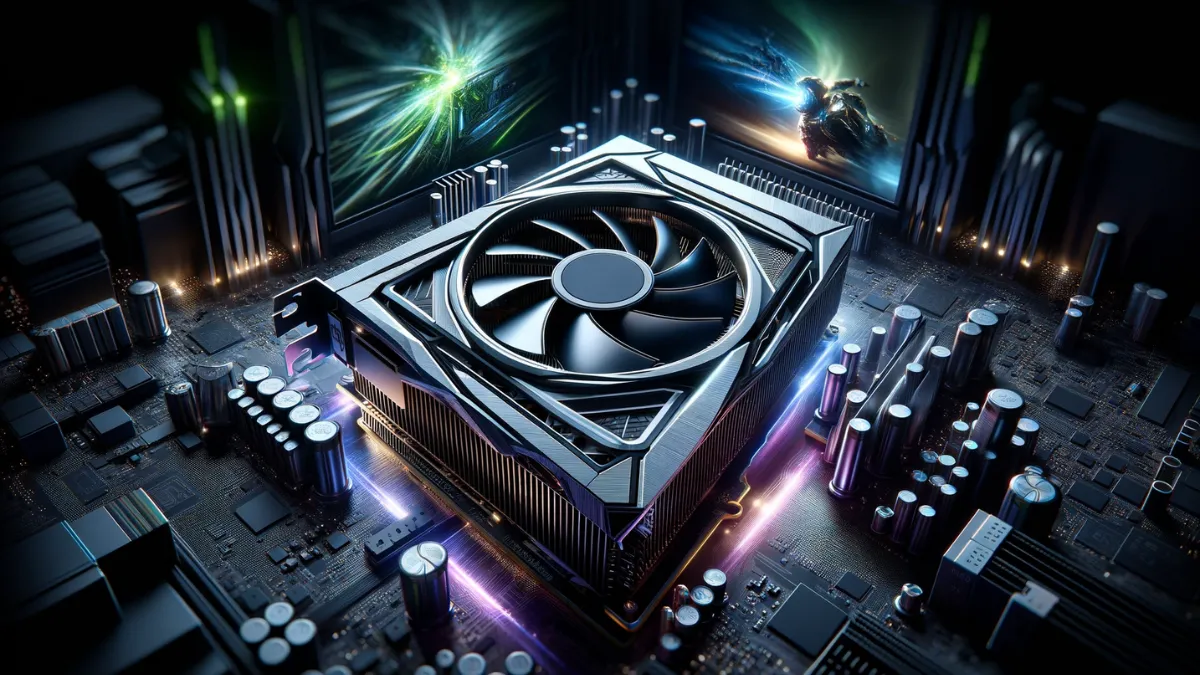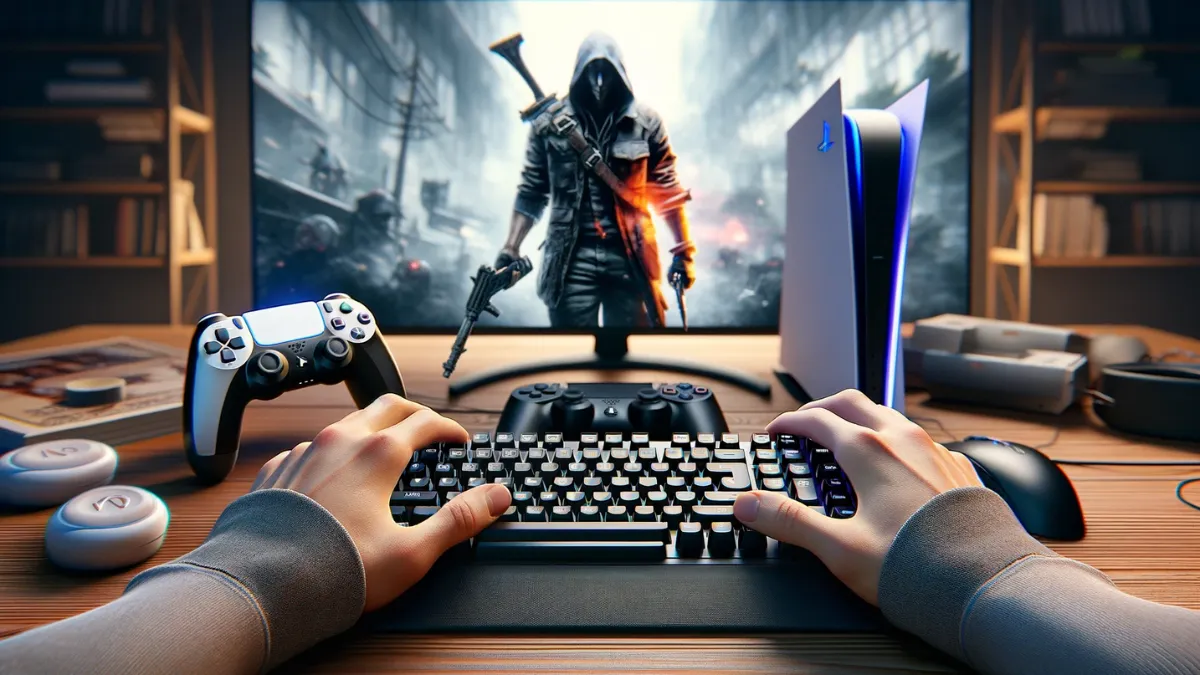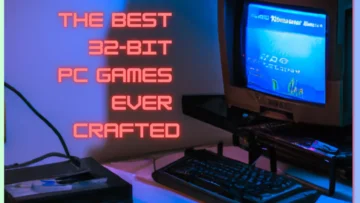Ready to dive into one of the hottest debates in our world of gaming? But first, let’s kick things off with a jaw-dropping fact.
Did you know, according to a report from EY, the global gaming market is expected to skyrocket to a whopping $211 billion by 2025? And guess what’s leading the charge? That’s right, PC and console gaming are at the forefront of this explosive growth!
Now, let’s talk about the elephant in the room: the age-old showdown of PC vs Console Gaming.
This isn’t just a choice between two types of hardware, its about different gaming philosophies, communities and experiences.
Gist of the post in short : "PC vs Console"
| Section | Better Choice | Why? |
|---|---|---|
| The Cost Factor | Console | Consoles often have a lower initial cost & simpler long-term investment. |
| Performance and Graphics | PC | PCs offer superior graphics and performance, customizable to user preference. |
| Game Library & Exclusives | Console | Consoles often have more exclusive titles, influencing gamers' choices. |
| Ease of Use & Accessibility | Console | Consoles are more user-friendly and easier for new gamers to get started. |
| Customization & Upgrades | PC | PCs offer extensive customization and upgrade options compared to consoles. |
| Portability & Space | Console | Consoles are more portable and require less space than PC setups. |
| Longevity & Future-Proofing | PC | PCs offer better future-proofing through upgrades, adapting to evolving technology. |
Basics of PC & Console Gaming
Alright, let’s break it down. When we talk about PC gaming, we are looking at playing video games on a personal computer.
Its all about customization, powerful hardware and a wide range of games available through different online platforms.
Console gaming, on the other hand, is about those dedicated gaming machines like PlayStation, Xbox and Nintendo Switch. Its more about plug & play, ease of use and exclusive titles.
Taking a quick trip down memory lane, both PC and console gaming have evolved tremendously.
Consoles have transformed from the simplistic Atari of the 1970s to the ultra-sophisticated PS5 and Xbox Series X of today.
PCs have made a similar journey, from the early days of text-based adventures to the high-powered gaming rigs we see now.
The Cost Factor
Let’s talk money, because who doesn’t love that? When you are stepping into the gaming arena, the first thing that hits you is the price tag.
For PC gaming, the initial cost can vary wildly. You could build a budget friendly rig for a few hundred bucks or go all out with a beast that costs thousands. Its all about how much power you want under the hood.
Consoles, however, are more straightforward. You have got a fixed price for the latest PlayStation, Xbox or Switch. Generally, they’re more wallet-friendly at the start compared to a high-end gaming PC.
But wait, there’s more to the story. Think long-term. PCs offer the flexibility to upgrade piece by piece. Need more RAM? Slot it in. Craving better graphics? Swap out the GPU. This can spread out costs over time.
However, with consoles, you are pretty much locked in until the next big release, which might mean shelling out for a whole new system every few years.
Diving deeper into the cost world, let’s not forget about the games themselves and those sneaky subscription services.
- Cost of Games: PC games often have the edge in terms of deals, especially with frequent sales on platforms like Steam and Epic Games Store. However, consoles have their share of sales too, and let’s not forget the pre-owned game market which is mostly console territory.
- Subscription Services: Xbox Game Pass, PlayStation Plus, Nintendo Switch Online – these subscriptions add up. PCs have similar services, but they are often optional and many multiplayer PC games don’t require a paid subscription to play online.
- Peripheral Devices: This is where things get spicy. With PCs, you might want to upgrade to that fancy mechanical keyboard or an ultra-responsive gaming mouse. Consoles have extra controllers, charging docks, or even VR headsets.
Here’s a quick breakdown example:
PC Gaming Setup:
- Initial Setup (Mid-Range): $1,000
- Games per year (Average $50 x 6): $300
- Online Services: Mostly Free
- Peripherals (Upgrades/Extras): $200/year
Console Gaming Setup:
- Console Cost (e.g., PlayStation 5): $500
- Games per year (Average $60 x 6): $360
- Online Service (e.g., PlayStation Plus): $60/year
- Peripherals (Extra controller, etc.): $100/year
Remember, these are rough estimates. Your mileage may vary based on how you game and what deals you score.
Performance & Graphics

Alright, lets get into the nitty-gritty of PC & Console Gaming in terms of performance and graphics. It’s like comparing a sports car to a luxury sedan – both have their perks, but they offer different rides.
Graphics Capabilities:
PCs often take the lead with the latest GPUs, offering stunning visuals and higher frame rates. They are like chameleons, adapting to the latest tech advancements.
Consoles, while not as flexible, are no slouches. The latest models pack enough punch to deliver crisp, beautiful graphics, but they’re more like a set menu at a fancy restaurant – what you see is what you get.
Frame Rates and Resolution:
Here’s where PC gamers might boast a bit. PCs can push higher frame rates, especially if you have got top-tier hardware.
We’re talking the difference between a smooth 60 FPS (frames per second) or even up to 120 FPS and beyond, compared to consoles which typically target 30 or 60 FPS. Higher frame rates mean smoother gameplay, which can be a game-changer in fast-paced action.
Game Optimization:
Console games are often optimized to run well on the specific hardware, offering a more consistent performance. PCs, with their myriad of hardware combinations, can sometimes run into optimization hiccups.
But when they hit the sweet spot, it’s gaming nirvana.
Hardware Differences:
PCs boast the latest CPUs and GPUs, and you can always upgrade individual components. Consoles, meanwhile, offer a fixed hardware setup that’s optimized for gaming right out of the box.
Think of it like this: PCs offer a customizable feast of hardware options, while consoles serve up a carefully curated set menu designed for optimal performance.
How do these factors affect your gaming experience?
In a nutshell, it boils down to preference. Do you crave the cutting-edge graphics and customization that PCs offer or the consistency and ease of a console?
| Feature | Latest Generation Consoles | PCs (High-End Configuration) |
|---|---|---|
| Graphics Processor | Custom GPUs based on AMD's RDNA 2 architecture | Latest GPUs (e.g., NVIDIA RTX 3080, AMD Radeon RX 6800 XT) |
| Performance | Optimized for stable 4K at 60 FPS; some support 120 FPS | Can achieve 4K at 120 FPS or higher; highly customizable |
| Frame Rate | Targeting 60-120 FPS depending on the game | 60-240 FPS or higher, depending on hardware & settings |
| Resolution | Up to 4K native resolution | 4K and beyond; supports ultrawide & multiple monitors |
| Ray Tracing | Supported in newer models (e.g., PS5, Xbox Series X) | Supported; more options & better performance |
| HDR Support | Yes | Yes, depending on the monitor |
| Game Optimization | Games optimized for specific console hardware | Varies based on game & system specifications |
| Upgradeability | Fixed hardware; no upgrade option | Easily upgradeable components (GPU, CPU, RAM, etc.) |
Game Library & Exclusives
Let’s jump into the exciting world of game libraries and those tempting exclusive titles!
Available Games:
Both PCs and consoles offer a vast ocean of games. PCs have a massive library, thanks to platforms like Steam, Epic Games Store & GOG. They offer everything from the latest AAA titles to indie gems and even classic games.
Consoles, while having a smaller selection, pack a punch with quality and often family-friendly titles, especially from brands like Nintendo.
Exclusive Titles:
This is where things heat up. Consoles often lure gamers with exclusive titles you can’t play anywhere else. Think ‘Halo’ for Xbox, ‘The Last of Us’ for PlayStation and ‘The Legend of Zelda‘ for Nintendo.
PCs, on the other hand, don’t lean heavily on exclusives but offer a wider range of games, including exclusive genres like complex strategy games and in-depth simulation games.
Impact on Gamer’s Choice:
Exclusives can be a major deciding factor. If you are dying to play ‘Spider-Man: Miles Morales’, you’re looking at a PlayStation.
But if you’re more into indie titles or VR gaming, PC might be calling your name. Its like choosing a favorite restaurant – sometimes you go where the menu suits your taste best.
In the end, your choice in the debate might hinge on which games you can’t live without.
Ease of Use & Accessibility

Let’s chat about how user-friendly PCs and consoles are! Its like comparing setting up a home theater to just plugging in a DVD player.
Setup Process:
Consoles are the kings of convenience. Unbox, plug into your TV, and voila – you’re ready to game. It’s straightforward, with minimal technical know-how needed.
PCs, on the other hand, might require a bit more tech-savviness, especially if you’re building your own rig. You’ll need to install the operating system, drivers and then your games.
User-Friendliness:
Consoles are designed to be as easy as possible for everyone, from young kids to non-techy adults. The interfaces are simple and the controllers are intuitive.
PCs offer a broader range of experiences and customization, but this can come with complexity. Tweaking settings, optimizing performance & troubleshooting can be part of the PC gaming journey.
Learning Curve for New Gamers:
If you are new to gaming, consoles offer an easier start. They’re less intimidating & you can jump into a game with just a few clicks.
PC gaming might seem like a steep hill at first – there’s a bit to learn about game settings, system optimization and maybe even keyboard and mouse controls. But don’t worry, its a hill worth climbing for the freedom and depth it offers.
Consoles: The Kings of Convenience
- Setup: It’s as easy as pie. Unpack, connect to your TV and you’re set. Consoles are the epitome of plug & play.
- Maintenance: Minimal fuss here. Console updates are straightforward and there’s no need to worry about hardware compatibility.
- User-Friendliness: Designed for all, from gaming newbies to seasoned players. The interface is intuitive, making it a breeze to navigate.
PCs: The Realm of Customization
- Setup: More hands-on. Installing your OS, setting up drivers, and then games. Its a bit of a project, but hey, it’s also fun or you could ask for help from the Pros!
- Maintenance: A bit more involved. You’ll need to keep your system updated and sometimes troubleshoot games.
- Customizability: This is where PCs shine. You can tweak your hardware and settings to get the perfect gaming experience.
- Mods and User-Created Content: PC gaming’s secret sauce. Mods can transform games, offering new experiences and extending the life of a title.
In PC & Console Gaming, consoles win in convenience, but PCs offer a tailored experience that’s hard to beat.
Your choice depends on what you value more: the simplicity and ease of consoles or the flexibility and depth of PCs.
Customization & Upgrades
PC Gaming Customization:
- Endless Options: Swap out your graphics card, upgrade your RAM or get a faster CPU. It’s like building your dream car.
- Tailor-Made Gaming: Adjust settings in-game for optimal performance. Want ultra-high graphics? Go for it. Need to boost FPS? You can tweak that.
- Aesthetics: Light up your gaming den with RGB lighting, custom cases, and more. It’s not just about performance; it’s about style, too.
Console Customization Limitations:
- Mostly Static Hardware: What you buy is generally what you’re stuck with until the next console release.
- Limited External Upgrades: You can expand storage or get a cooler controller, but that’s about it.
Impact of Upgrades on Performance:
- PC: Upgrading hardware can significantly boost performance. Enjoy faster load times, higher frame rates and better graphics. Its like giving your car a turbo boost.
- Console: With fixed hardware, performance improvements are limited. You rely on software updates or new console releases for major upgrades.
In summary, if you are all about personalizing your gaming experience and squeezing every bit of performance out of your system, PC gaming is your playground.
Portability & Space Considerations
When it comes to PC & Consoles, how you fit gaming into your space and lifestyle is a big deal. Let’s look at portability and space needs.
Consoles: Masters of Portability
They are compact and easy to move. Whether you are heading to a friend’s house or moving rooms, its a breeze.
Space-Savvy: Consoles don’t demand much room. They can snugly fit into your entertainment center or sit neatly next to your TV.
PCs: The Stationary Powerhouses
Generally, PCs are less about portability and more about a dedicated space. Moving a full setup isn’t a spontaneous decision.
Space Needs: A PC setup requires more real estate. You have got the tower, monitor(s), keyboard, and mouse. Plus, room for that coffee cup!
Both platforms have their perks. If you are tight on space or love gaming on the go, consoles are your friend.
But if you have a dedicated space and crave that immersive setup, a PC gaming station is your haven. While choosing think about where and how you’ll be gaming most of the time.
Longevity & Future-Proofing

Relevance in the Gaming Market:
- PCs: They’re like fine wine, aging well with upgrades. A high-end PC today can stay top-notch for years, especially if you are willing to upgrade components along the way.
- Consoles: More like a snapshot of tech at launch. They remain relevant for the duration of their generation, usually 5-7 years, before a new model takes over.
Upgradeability vs Fixed Hardware:
- PCs: The ultimate in upgradeability. You can swap out almost everything – GPU, CPU, RAM, you name it.
- Consoles: What you buy is what you get. No upgrades, but this ensures all games for that console run as intended throughout its lifespan.
Lifecycle of Console Generation vs PC Upgrades:
- Consoles: Each generation brings a significant leap in technology, but you might need to buy a new system to stay current.
- PCs: More gradual. You can upgrade bit by bit, spreading out costs and staying up-to-date.
Future-Proofing:
In a world where gaming tech evolves rapidly, PCs offer the flexibility to adapt and upgrade. You’re less likely to be left behind when the next big thing hits.
Consoles offer the peace of mind of standardization. Your console won’t become obsolete overnight and all games designed for it will work smoothly till the next generation rolls out.
FAQ's
Which is cheaper: gaming PC or console?
In terms of initial cost, gaming consoles are usually cheaper than gaming PCs. Consoles offer a more budget-friendly option for entering into gaming, with less need for upgrades and lower-priced games and accessories over time.
Can I play console-exclusive games on PC?
Some console-exclusive games are not available on PC. However, with the advent of game streaming services and cross-platform releases, more games are becoming accessible across platforms.
How often do I need to upgrade my PC or console?
PCs may require more frequent upgrades to stay current with the latest gaming technology and software demands. Consoles, on the other hand, have a longer life cycle, usually around 5-7 years, before a new model is released.
What are the disadvantages of gaming PC?
Disadvantages of gaming PCs include higher initial costs, the need for ongoing upgrades, a more complex setup and maintenance & a higher learning curve for non-tech-savvy users.
What are the disadvantages of a gaming console?
Disadvantages of gaming consoles include limited graphical horsepower compared to PCs, fixed hardware with no upgrade options, limited input device options, and the inability to mod games.
Why do people buy PlayStation instead of PC?
People might choose PlayStation over PC due to its ease of use, exclusive game titles, more affordable initial cost, and the unified multiplayer and social experience it offers. It’s often preferred by those who seek a straightforward, plug & play gaming experience.
Game Over: Summing Up the PC vs Console Battle
We’ve journeyed through the epic PC and Console Gaming landscape, exploring every nook & cranny from cost and performance to game libraries and ease of use.
Here’s a quick recap:
- Cost: Consoles win for lower initial costs, while PCs offer value through upgradability.
- Performance & Graphics: PCs lead with customizable, high-end graphics & performance.
- Game Library: Consoles shine with exclusive titles, but PCs boast a vast library.
- Ease of Use: Consoles are the kings of convenience, perfect for plug-and-play fans.
- Customization and Upgrades: PCs are the ultimate playground for customization enthusiasts.
- Portability: Consoles are your go-to for gaming on the move.
- Longevity: PCs offer a future-proof gaming experience with their upgradable nature.
Now, it’s over to you!
Remember, the best choice between PC and console gaming isn’t about the most powerful specs or the biggest game library.
It’s about what fits YOUR gaming style, needs & budget.




